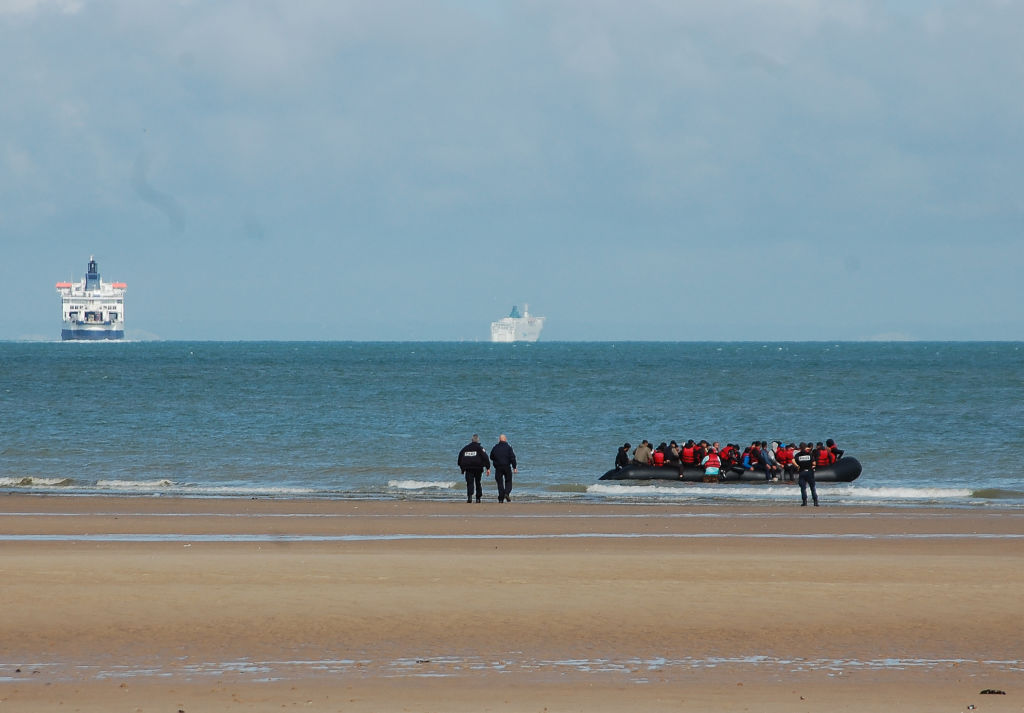The cross-Channel migrant crisis would perhaps be solved in a single stroke if only French patrols would tow the boats back to their mainland, or allowed their British counterparts to do the same: after all, the Australians have eliminated the problem by adopting the same approach. But how can we, on this side of the Channel, prompt the French authorities to undertake this sensible and obvious course of action, one that would seem to be in everyone’s interest?
One way of doing so would be to relocate newly-arrived Channel migrants not just to Rwanda but to some of France’s former colonies. Our own government could reach out to some of France’s former territories in West Africa, for example. Some of these countries offer the migrants enough ‘health, security and wellbeing’ to avoid enraging our Human Rights Industry. Ivory Coast, Senegal and Benin are obvious candidates and perhaps, in the future, so will Niger.
Relocating our Channel migrants to such countries offers several advantages. On the one hand, it would help to solve the migration problem at source by persuading many would-be refugees not to make the journey to Europe in the first place. A very considerable number of migrants who head to the EU originate from sub-Saharan Africa, prompting Brussels to do deals with some unsavoury North African regimes to try and stop them leaving. But many will question the logic of travelling so far and at such high personal risk if they could later be returned to the same neck of the woods.
Other would-be migrants will be drawn to the thriving economies that such a migrant-hosting plan will help to build. It is easy to forget that our existing Rwanda plan gives the Kigali regime £120 million in development funding as well as ‘substantial investment to boost the development of Rwanda, including jobs, skills and opportunities to benefit both migrants and host communities’. So not only would such investment in West African states help pull migrants away from the EU’s doors, as well as the Channel beaches, it would also benefit local economies that need it. How ironic that the same people who criticise the Rwanda plan, and would condemn a similar West African programme, are largely the same people who call for more overseas aid.
But there is also one reason why France’s former colonies, in particular, now make very fitting partners for our government in its bid to resolve the migrant crisis, and why such a development, or even the mere threat of it, would quickly persuade Paris to change tack.
The reason is that the mere threat of such British involvement in their former colonies would cause alarm, consternation and shock in Paris. French officials regard their former colonies, in West Africa and elsewhere, as a Francosphere that defines their post-imperial grandeur. This Francophonie allows them to shake off a deeply held insecurity about the superiority of les Anglo-Saxons. Yes, we have fought and defeated them so many times, runs the thinking, and even liberated them from the Nazis, but at least we have a former empire from which the English are kept away.
Paris retains close links with its former colonies and, in some cases, maintains a strong grip over them. But these may not be quite close and strong enough to stop their governments feeling the lure of our own millions if, in return, they house our migrants. The mere threat of such a move would cause panic in Paris because it would be viewed, hardly without justification, as these countries taking the first step towards the Anglosphere. This would prompt a serious rethink of France’s existing approach.
As the number of small boats mount – causing serious social tensions within our own borders and migrant deaths on the seas – we have little to lose from taking such drastic measures. Not just against the criminal gangs who lie behind this trade, but also the French authorities who are allowing it to happen.
Roger Howard is the author of Power and Glory: France’s Secret Wars with Britain and America 1945-2016 and Spying on the Reich: The Cold War Against Hitler 1933-45.






Comments